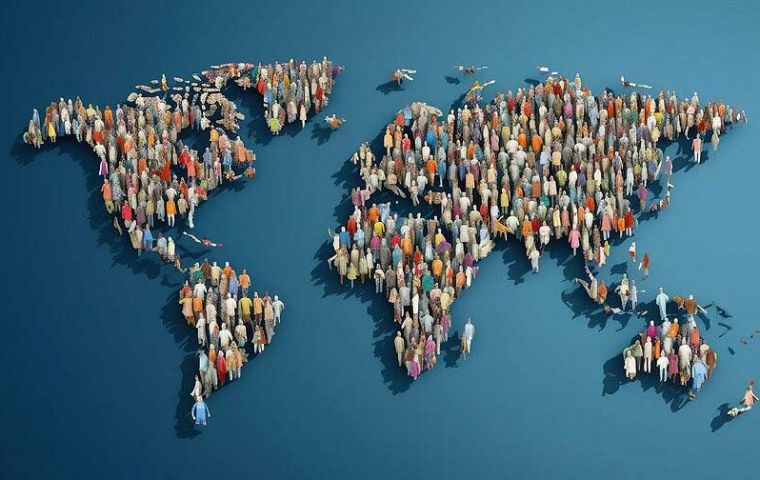MercoPress. South Atlantic News Agency
The entire world's population is expected to reach 10.3 billion by 2080
 Fewer people would represent less aggregate consumption, a UN official explained
Fewer people would represent less aggregate consumption, a UN official explained After reaching 10.3 billion people by 2080, the world's population is projected to start dwindling, according to the ”World Population Prospects 2024″ document released this week. The study forecasted that the current population of 8.2 billion would keep soaring over the next 60 years and fall to 10.2 billion by the end of the century.
The document also mentions that the world population in 2100 would amount to 6% fewer people (700 million) than projected in June 2013.
These figures are regarded as a hopeful sign amid global warming and other threats facing mankind. According to UN Under-Secretary-General for Economic and Social Affairs Li Junhua, “the demographic landscape has evolved a lot in recent years.” Declining fertility levels in some of the world's largest countries such as China, are one of the main reasons for the newest projections which herald these for earlier than previously predicted by experts.
Fewer people would represent less aggregate consumption and would mean “a reduction in human impact on the environment,” Li Junhua explained. “However, slower population growth will not eliminate the need to reduce the average impact attributable to each person's activities,” the official went on.
According to the UN, more than a quarter of the world's population (28%), currently lives in one of the 63 countries or areas where the population has already peaked, including China, Russia, Japan, and Germany. Nearly 50 more countries are expected to join this group in the next 30 years, including Brazil, Iran, and Turkey, it was also explained. Population growth is also expected to continue beyond 2054 in countries such as India, Indonesia, Nigeria, Pakistan, and the United States.
The experts also mentioned an increase in life expectancy worldwide following the Covid-19 pandemic slowdown. This year people are expected to live 73.3 years on average and that figure has been projected to reach 77.4 years in 2054.




Top Comments
Disclaimer & comment rules-

-

Read all commentsThankfully, I won't have to worry about that...
Jul 14th, 2024 - 01:58 am 0Me too imoyaro, its time people got educated on contraception and stopped having kids they can not afford to feed and look after,
Jul 14th, 2024 - 12:17 pm 0Commenting for this story is now closed.
If you have a Facebook account, become a fan and comment on our Facebook Page!